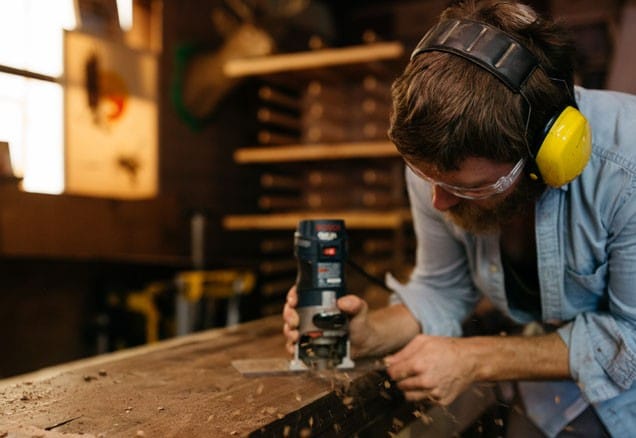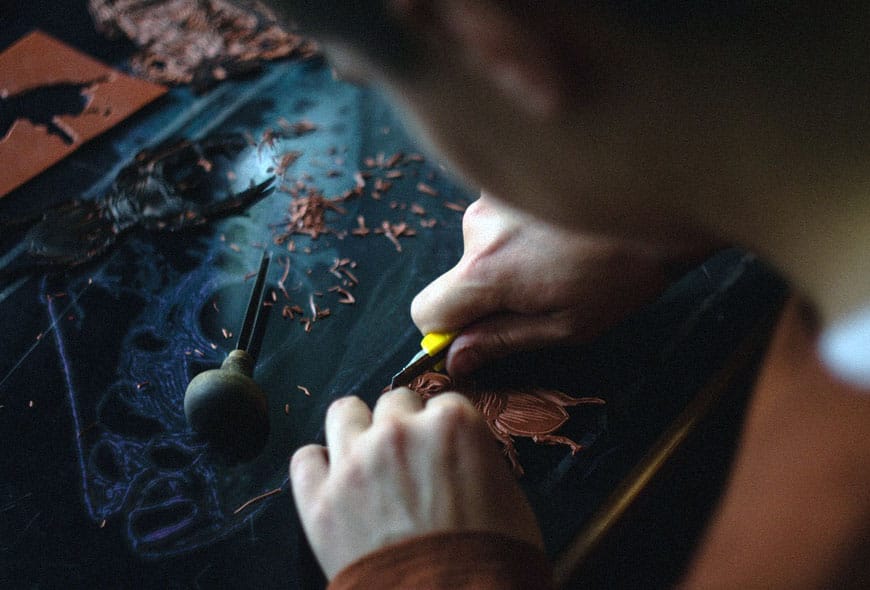Why Millennials Should Have Non Tech Hobbies
If someone asked you “What’s your hobby?” how would you respond? Would you say “watching TV,” like over half of the millennials surveyed by the Urban Land Institute? Would you name something wacky, like building sculptures out of knickknacks in your backyard?
There’s nothing wrong with watching TV, surfing the Internet or posting witty one-liners on Twitter. Tech-savviness is the defining feature of Gen Y, after all. Still, when you get down to it, non tech hobbies that don’t involve TV, shiny gadgets or the World Wide Web have a place in the Information Age too.
Non-Tech Hobbies Bring Out Your Creator Side
When you watch TV, read an online article or laugh at a funny video, you’re simply a consumer. Once you take your fill of instant gratification, you move on to the next thing.
When you paint a picture, chip away at a block of marble or knit a special sweater, you’re a creator. Because those things require relatively more effort on your part, you value them more. When you value something, you want to make it extra special and pour your creativity into it — a quality that employers seek in job applicants.
Non-Tech Hobbies Are Healthier
Hobbies aren’t just a way to pass the time. They also allow you to calm your mind. If your non-tech hobby involves going outside (e.g. hiking, swimming), you have an awesome way to exercise your body as well.
Non-Tech Hobbies Grant You More Control Over Your Creation
Let’s say you created an original meme. You post it online, hoping that people will find it funny. They do — so much, in fact, that they build and build on it until you can barely recognize it as yours anymore!
That’s the thing about the Internet: Once you upload something for the world to see, it’s fair game for anyone who knows how to use the “Download” button. Meanwhile, a handcrafted vase can’t be easily replicated by someone from halfway across the world (unless they have a 3D printer, which is unlikely).
Non-Tech Hobbies Can Be Lucrative
Think that 19th century stamps are only good for museums? Think again. John Apfelbaum, of Apfelbaum Inc, has seen many people turn their trading into a profitable side-hustle: “Some collectors become so knowledgeable that they can find rare varieties that are unknown to others. Every stamp seller started as a collector and many are able to supplement their incomes or make their hobby into a full time lucrative profession.”
Don’t believe me? During a 2013 transaction, a single stamp was purchased anonymously for a jaw-dropping $9.5 million — the most expensive stamp sold for that year! So keep your collection safe and sound, as you never know how much it’ll be worth in the future.
Non-Tech Hobbies Make You More Interesting
How many people can say they love to surf the Internet? Assuming that’s true for all online users, the number would be around three billion people. It’s not exactly what you’d call a “unique” hobby.
What about carving intricate sculptures out of pencil tips? Knowing what’s on your cat’s mind (which, as any cat owner will tell you, is about as easy as pulling teeth from a live whale)? Those are what you’d call conversation starters!
Non-Tech Hobbies Make You a Better Person
To paraphrase Paige Ballard from The Huffington Post, making things from scratch is a transformative process. When you visualize your final product, choose the materials you’ll use and take time out of your busy schedule to craft it, you feel a different kind of excitement than what you’d feel from simply clearing a video game level. You didn’t just read a GameFAQs guide from top to bottom: You poured your heart and soul into your creation, as cheesy as that might sound. Once you’re done, you can look back and say “This awesome thing came from my hands. Therefore, I’m awesome too.”
To be clear, this is not to suggest you should toss everything tech-related out of the house. Things like smartphones and apps are great, and will continue to be as long as people are willing to upgrade them. At the same time, keep in mind that what you create offline has just as much — if not more — value as the things you create online.











